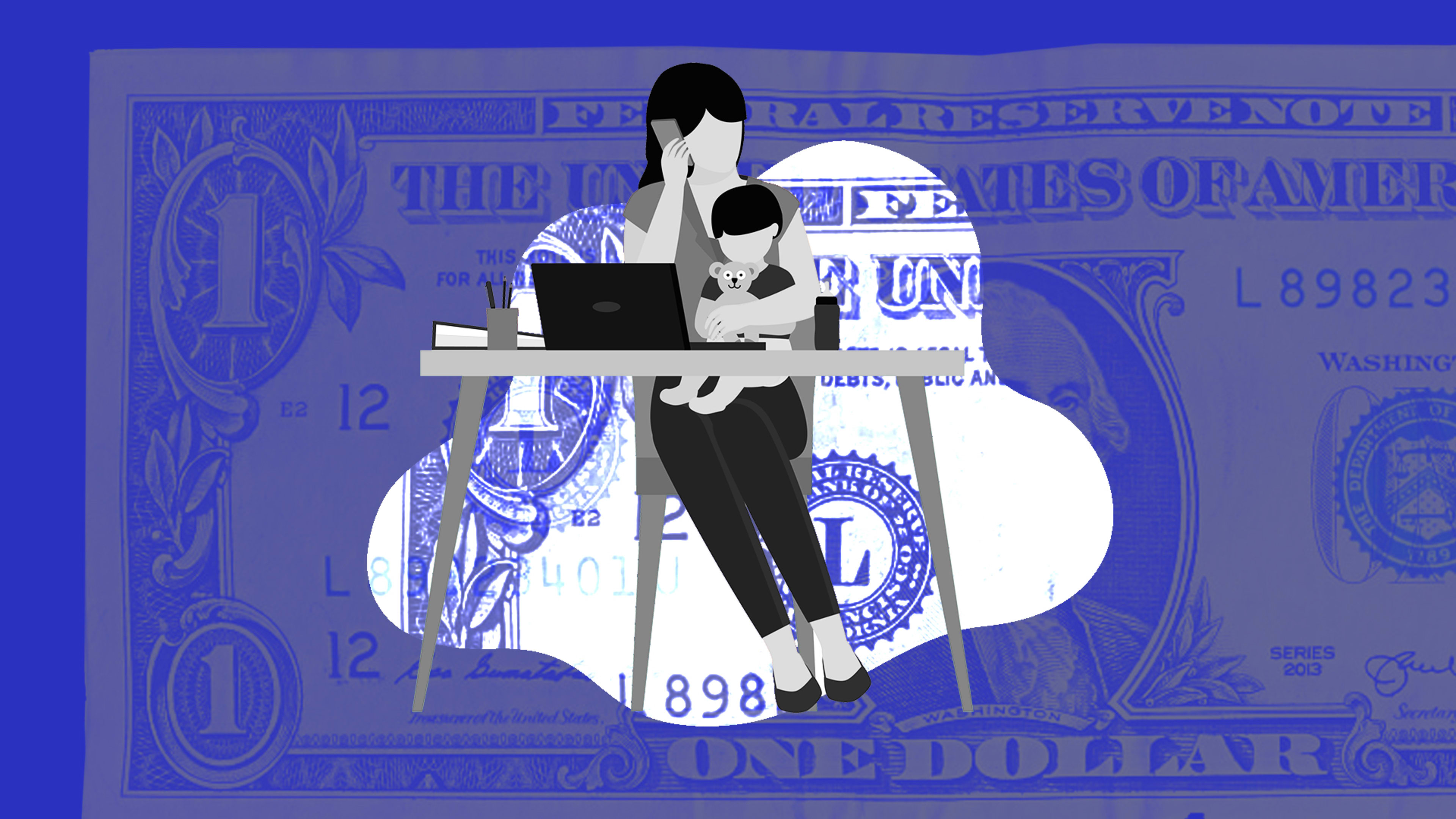Women’s #1 source of stress is money. The pandemic has exacerbated this. Women have lost their jobs at a disproportionate rate; have been forced to leave the workforce at a disproportionate rate; have lost productivity at a disproportionate rate; and have lost out on promotions at a disproportionate rate.
The gender pay gap’s lesser-known cousin—the gender wealth gap—already had non-Black women owning a paltry 32 cents to a white man’s dollar on average, and a single penny for Black women. (And those numbers were calculated before the pandemic.) It almost certainly worsened over the past 18 months, with women of color and LGBTQ+ individuals hit even harder.
And the negative financial impact of the pandemic may well ripple and grow for years for women from dollars not earned, retirement contributions not made, compounding of returns missed out on, promotions not achieved.
It’s probably no surprise, then, that the recent Ellevest Financial Wellness Survey found that money is making women literally sick. Nearly half of all women—and 61% of millennial women—report that worrying about money has caused them to be emotionally or mentally unwell. And 40% of all women—and half of millennial women—say that worrying about money has made them physically sick.
The importance of this is hard to overstate.
And yet, that doesn’t fully capture the breadth and severity of the issue.
The pay and wealth gaps are also arguably making our society sick as well. We know that if you want to improve a society, you get more money in the hands of women. They in turn invest that money into their communities (some 85 or 90 cents of a dollar vs. 10 cents for men in developing markets). We further know that societies are fairer when women have more money, the economy grows, and their families are better off.
So is it a coincidence that, in the United States—where women are losing financial ground to men, and women of color even more so—that society is becoming more unfair, rancor is increasing, people are more anxious and unhappy?
Is it even a stretch to say that the future is scarier? And that global warming could be worse because of this inequality? (Keep in mind women are more likely to believe in global warming and worry about its effects, as demonstrated by the young women leading the protests at the recent COP26 summit.)
And yet as a society, we persist in gaslighting women about their money challenges. Women’s media diet consists of a steady menu of articles on wellness: physical, emotional, spiritual, sexual. (And it’s hard to argue against any of those.) But when it comes to financial wellness, the articles are scarce, and they can be damaging.
For example, a study showed that 90% of articles on money written for women were about saving and budgeting. (In contrast, 72% of articles targeted to men on money are about investing and growing their money.) Read one after another of these, and it’s as if the systemic issues don’t exist, but that the gender wealth gap is a problem that she can solve by coupon-clipping her way to prosperity. Or just drinking fewer lattes. Or having fewer facials. Or buying fewer shoes.
It isn’t.
Looking at it another way, these articles tell her that if she is able to solve her money challenges with a few simple smart shopping tips then it’s her fault that she does not have more money.
It’s not.
In turn, as the Ellevest Financial Wellness Survey demonstrates, if she is stressed about money and lacks a sense of financial wellness, her total wellness is damaged, as the stress over money corrodes her well-being.
The solution? Systemic problems need systemic solutions, such as legislating mandated paid parental leave (since it’s with the birth of the first child that the gender pay gap starts to kick in). And more accessible and affordable child care. And more generous sick leave policies. And more national government support for entrepreneurs to take care of their employees (and themselves).
What’s within her individual control? Normalizing talking about money with other women. Today, for many women, money is a taboo topic—again, the result of harmful money messages she receives—with women preferring to talk about literally anything else, including their own death, than money. In contrast, some 40%+ of women report that talking about money alleviates stress.
That, and putting herself on the path to financial wellness, by taking the actions she’s able to, regardless of where she starts (which, according to our research, also helps alleviate money-related stress.) This includes practicing financial wellness—which we at Ellevest define as knowing how much money she has, having a plan for where she wants to go (such as getting credit card debt paid off or investing to buy a home), and feeling good about it. Or at least at peace with it.
Imagine a country in which money is no longer a source of stress, but a source of strength, for women. Imagine a country, then, in which women have more power, stronger voices, improved health, more agency, greater equality.
Sign us up.
Sallie L. Krawcheck is the CEO and cofounder of Ellevest, a financial company built by women, for women. She is a former CEO of Merrill Lynch Wealth Management and Smith Barney.
Recognize your brand’s excellence by applying to this year’s Brands That Matter Awards before the early-rate deadline, May 3.
